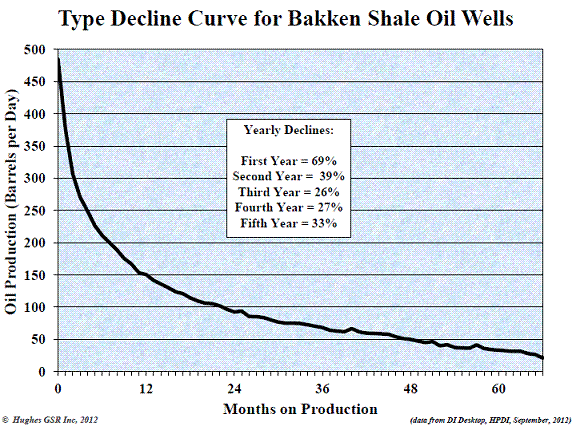Environment & Energy
Related: About this forumAmerica is a Gas Hog and we’re not going on a Diet even if Global Warming Kills Us
http://www.juancole.com/2014/09/america-global-warming.htmlAmerica is a Gas Hog and we’re not going on a Diet even if Global Warming Kills Us
By contributors | Sep. 5, 2014
By Michael T. Klare
Considering all the talk about global warming, peak oil, carbon divestment, and renewable energy, you’d think that oil consumption in the United States would be on a downward path. By now, we should certainly be witnessing real progress toward a post-petroleum economy. As it happens, the opposite is occurring. U.S. oil consumption is on an upward trajectory, climbing by 400,000 barrels per day in 2013 alone — and, if current trends persist, it should rise again both this year and next.
In other words, oil is back. Big time. Signs of its resurgence abound. Despite what you may think, Americans, on average, are driving more miles every day, not fewer, filling ever more fuel tanks with ever more gasoline, and evidently feeling ever less bad about it. The stigma of buying new gas-guzzling SUVs, for instance, seems to have vanished; according to CNN Money, nearly one out of three vehicles sold today is an SUV. As a result of all this, America’s demand for oil grew more than China’s in 2013, the first time that’s happened since 1999.
Accompanying all this is a little noticed but crucial shift in White House rhetoric. While President Obama once spoke of the necessity of eliminating our reliance on petroleum as a major source of energy, he now brags about rising U.S. oil output and touts his efforts to further boost production.
Just five years ago, few would have foreseen such a dramatic oil rebound. Many energy experts were then predicting an imminent “peak” in global oil production, followed by an irreversible decline in output. With supplies constantly shrinking, it was said, oil prices would skyrocket and consumers would turn to hybrid vehicles, electric cars, biofuels, and various transportation alternatives. New government policies would be devised to facilitate this shift, providing tax breaks and other incentives for making the switch to renewables.
ellenrr
(3,865 posts)If the world’s population swells to almost 10 billion and “business as usual” prevails, the amount of land given over to growing crops would see a 42% increase by 2050. Fertilizer use would grow by 45% in the same period, they found. This could decimate the world’s most fragile environments, destroying 10 percent of the remaining rainforests.
This deforestation combined with the methane emitted by livestock would cause the amount of greenhouse gases produced by the food industry alone to grow by almost 80%.
“This is not a radical vegetarian argument; it is an argument about eating meat in sensible amounts as part of healthy, balanced diets,” said Professor Keith Richards of Cambridge University. “Managing the demand better, for example by focusing on health education, would bring double benefits – maintaining healthy populations, and greatly reducing critical pressures on the environment.”
http://www.forbes.com/sites/jasperhamill/2014/08/31/meat-eaters-could-cause-dangerous-climate-change-scientists-warn/
bloomington-lib
(946 posts)hatrack
(64,484 posts)I only wish I'd said it.
Benton D Struckcheon
(2,347 posts)... or being against the expansion of offshore oil and gas exploration. But his facts on US oil demand are hugely distorted, which is disappointing as he really didn't need them to make his point.
Here's a graph of US petroleum consumption, with the actual figures included in the image off to the left:

Oil demand peaked all the way back in 2005, and is 5 quadrillion btu's less than it was that year.
The reason is that people have been driving less. Vehicle miles driven has, for the first time in the history of the car, decoupled from employment:

The blue line is vehicle miles driven, the red is total employment. The statement that US demand increased in 2013 by more than it did in China is correct, but does not point out that it was a small increase that does not at all change the declining trend in demand since 2005.
The coal hyperbole is equally incorrect. Coal usage increased modestly last year, but didn't even rise back to the level of 2011, much less reverse the declining trend in the use of that fuel. You can see that in the first image up there as well, to the left. The same is true for petroleum, by the way: demand increased last year, but didn't even recover back to 2011, much less break the trend.
Total use of fossil fuels? Same thing: increased last year, but didn't even get back to the 2011 level, and is well off its peak, reached in 2004 in the case of all of the fossil fuels together.
The headline is wrong as far as consumption. It's correct as far as policy towards drilling and exploration, but dragging in consumption only gives opponents a big fat target to hit him with.
Spider Jerusalem
(21,786 posts)the decline curves for shale production in the Bakken and Eagle Ford are very steep and the crossover point where new production can't keep ahead of declines is probably not very far away.

Nihil
(13,508 posts)> While President Obama once spoke of the necessity of eliminating our reliance
> on petroleum as a major source of energy, he now brags about rising U.S. oil output
> and touts his efforts to further boost production.
That's because he's not seeking another term in office and so can work on satisfying
his sponsors rather than his voters.
